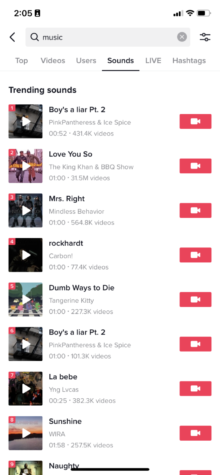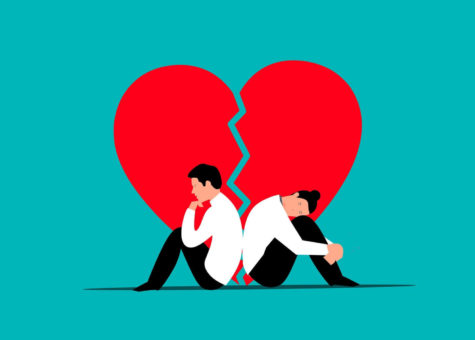Fandom Culture – and the Unhealthy Side of It
Large crowd of fans recording and cheering at a concert
Name 3 celebrities off the top of your head. That was easy, right? Can you now name personal facts about them? Their favorite music, favorite food, dating life; I’m sure you were able to think of that pretty fast as well. Celebrities have such a large presence in society, especially in recent times where information about them is at our fingertips. Although being a fan of a celebrity is completely normal, it’s important to make sure this doesn’t turn into an obsession, as it can have detrimental effects.
For one, it’s incredibly easy to go too far too fast. Celebrity worship, according to psychologist James Houran, gives us a sense of identity and feeds a psychological need within us. As such, it can be addicting, making crossing the line all the more simple. Going from keeping up with celebrity gossip to thinking of the celebrity constantly and withdrawing from loved ones is a slippery slope, one which we should be careful to avoid at all costs.
Additionally, obsessions over celebrities foster unhealthy standards. Celebrities are advertised as the “perfect person”, showing nearly no flaws to the public despite the fact that they do have them. This creates unrealistic expectations for fans, especially teenagers, for things such as their looks or personalities, resulting in lower self-esteem and the desire to change oneself in order to be more “perfect”. This sort of toxic thought process can be avoided by not idolizing celebrities.
Another thing this can lead to is people trying to fill a gap in their life. Social psychologist Dr. Ruth Sims states that if people feel as though they are missing a connection in their life or are misunderstood in daily life, they may turn to celebrities and their fandoms for comfort. However, identifying with a person who is out of reach or portrayed as perfect only gives temporary happiness. It does not give actual support or a way to build a lasting connection to fill this emotional gap.
Some people argue that loving a celebrity inspires creativity, especially with the rise in popularity of fanart, fanfiction, music, and other works based on that celebrity. However, it is completely possible for these kinds of artistic works to be made while also being cautious not to cross the line into obsession. For example, drawing Taylor Swift would be a respectful way to show that you like her, in contrast to constantly creating works either for or about her that may overstep her boundaries and make her uncomfortable. Obsession allows people to follow these sorts of desires without regarding any boundaries a celebrity may have.
Another justification people give is that a celebrity fandom can give people a community to belong to. While this is true, it can also be incredibly harmful. Dr. Sims says that finding people “like us” can give a fan community a sense of belonging, but also creates “in-group bias”. People who identify solely with this main community can cut themselves off from others in their lives, and start to believe that everyone else is wrong or disrespecting the source of their adoration if they don’t support the fandom culture. On the other hand, being part of this “in-group” can create conflict and ostracization if someone in the group doesn’t share the same opinion as the rest. Fandoms have the potential to be both supportive and toxic.
With this wave of celebrity worship in society comes unhealthy obsessions that harm us more than they help. Though loving a celebrity can inspire fans creatively and establish a united community, these experiences can and should be enjoyed in moderation.

Hi! My name is Uswa Saeed. I'm currently a 12th grader at Centennial High School, and this is my third year writing for Cen10 News. Writing has always...
















